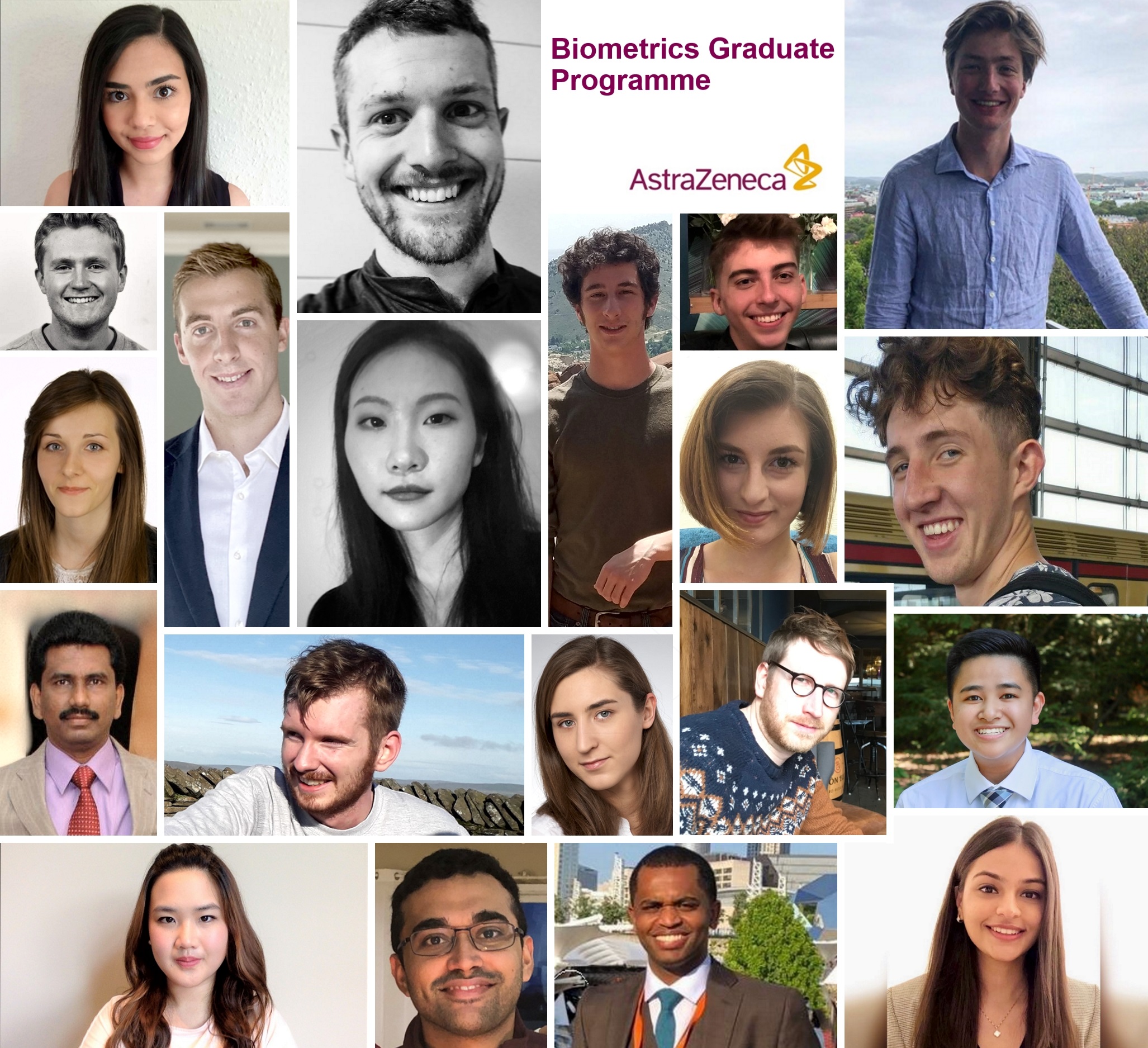Biometrics and Information Sciences Graduate Programme
Locations: Canada, India, Poland, Spain, Sweden, UK and US
Salary: Competitive
Applications: Will open from November 2026
About Biometrics
The Biometrics Graduate Programme is designed to provide you with the opportunity to support analysis and reporting as well as become a future leader of the Biometrics function.
The programme is offering permanent positions for graduate statisticians, programmers and information scientists. During the two years of the programme, graduates work on real drug development projects receiving on-the-job training and will have the chance to participate in the Global Biometrics Graduate Training Programme. We have an active graduate network across all skill areas and there are opportunities to join the business-wide AZ graduate network, too.

About the Biometrics Function
We are the home of early and late stage development statistics, programming and information science at AstraZeneca. We are a Function that supports all aspects of clinical drug development, including strategy, clinical trial design, data collection, analyses, data reporting and interpretation to inform the quality decision making on AstraZeneca’s drug projects. To underpin effective design and decision making, we use internally and externally sourced information and apply good information practice and knowledge management encouraging information re-use and knowledge retention.
Our common goal is to deliver value to the drug development pipeline through excellence in strategy and delivery, improving decision making, and engaging and shaping the external environment, whilst accessing and implementing innovative solutions.
About the Programme
The Biometrics Graduate Programme has four key elements: experiential learning, skills development, team work and leadership development, and a social network.
All Graduates will undertake real work, collaborating with experienced staff. During a two-year period, you will have different learning experiences designed to build broader skills and increase your business understanding. These learning experiences may involve design of studies, supporting the development of reporting standards, analysis of studies, supporting regulatory submissions, development of payer dossiers and publications, conducting literature reviews, use of observational data, modelling and simulation, or trial transparency working in different therapy areas (TAs) or locations/sites.
You will be supported with skills development relevant to your area of work and this will include processes, ways of working, quality management, risk management, standards, SAS and CDISC training (if required), and skill specific training (e.g. statistics, programming, text mining, information search and retrieval). You will have a coach/mentor and will be encouraged to be members of relevant professional bodies.
There will also be Graduate development events you will be attending focussing on personal leadership, team effectiveness, communication and influencing skills.
In addition, graduates will become part of an active community of past and present biometrics graduates who’ve joined the programme. Together, they support each other to raise awareness of the roles and activities within the wider function and share knowledge and skills. This community supports new graduates through its buddy system which connects them to a more experienced graduate or member of the biometrics team who acts as a guide and support to help the new graduate transition from academia to industry. Biometrics and Information Science Graduates are also encouraged to join ‘AZInspire’ - AstraZeneca’s wider Early Talent network which brings new recruits together to support cross functional learning, promote networking opportunities, and enhance business skills through a wide range of business and social activities.
What you can expect
Through developing your expertise, you will have the opportunity to add value in a broad range of Biometrics disciplines, including model-based drug development, real world evidence, health technology assessment, safety science and personalised healthcare. So, you’ll be part of a diverse and cross functional collaborative culture of support and you will be provided with a broad range of learning opportunities in drug development.
Our Statisticians, Programmers and Information Scientists provide highly experienced strategic input, expertise, and leadership to project teams in the design, analysis and interpretation of clinical studies and programmes of studies. Some also lead strategic capability or business area improvements within the department and across AstraZeneca research and development.
Essential Requirements
Statisticians
- MS/MSc (or local equivalent) in Mathematics, Statistics. Relevant PhD would be considered
- Able to demonstrate leadership and teamwork
- Good verbal and written communication skills.
Programmers
- BSc (or local equivalent) in Mathematics, Statistics, Computer Science or Life Science
- Programming knowledge (preferably SAS)
- Able to demonstrate leadership and teamwork
- Good verbal and written communication skills.
Information Scientist
- BSc (Hons.) degree (or local equivalent) in Mathematics, Statistics, Computer Science or Life Science Research skills
- Information handling skills e.g. literature review, knowledge management
- Able to demonstrate leadership and teamwork
- Good verbal and written communication skills.
AstraZeneca statisticians, statistical programmers, and information scientists are involved in industry-leading work, focused on outstanding programme design and delivery of the quality information we need to meet our drug project objectives, which drive product development.




